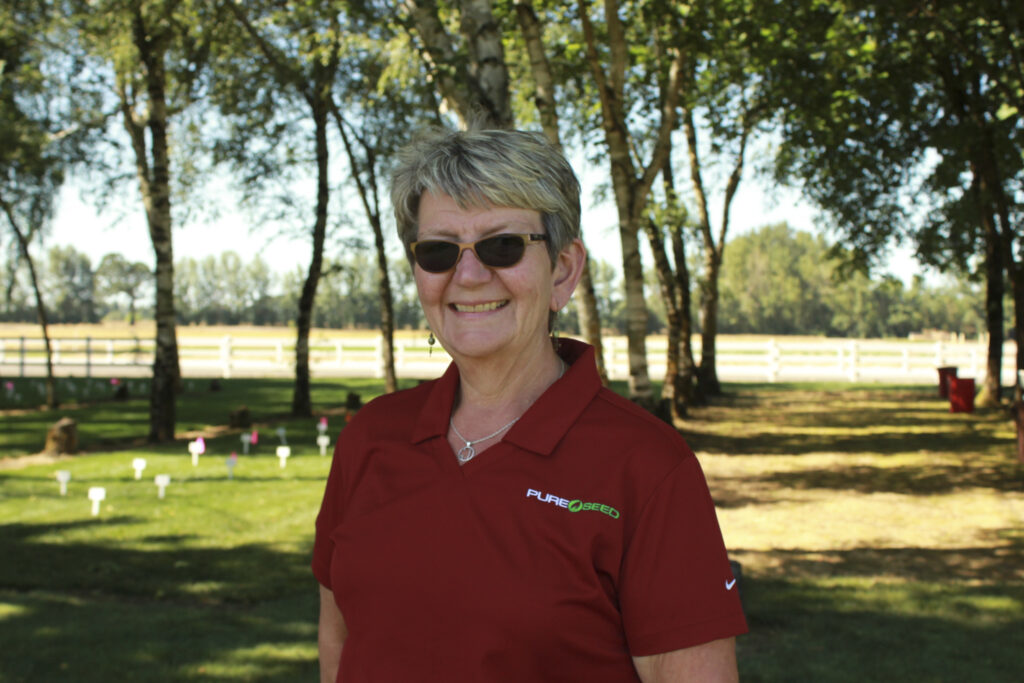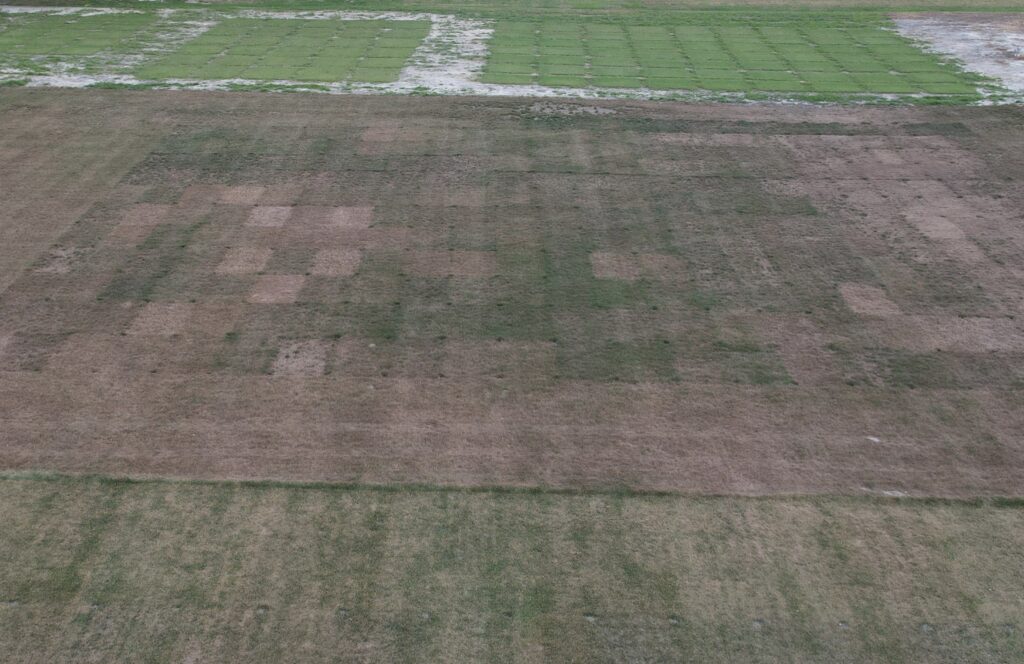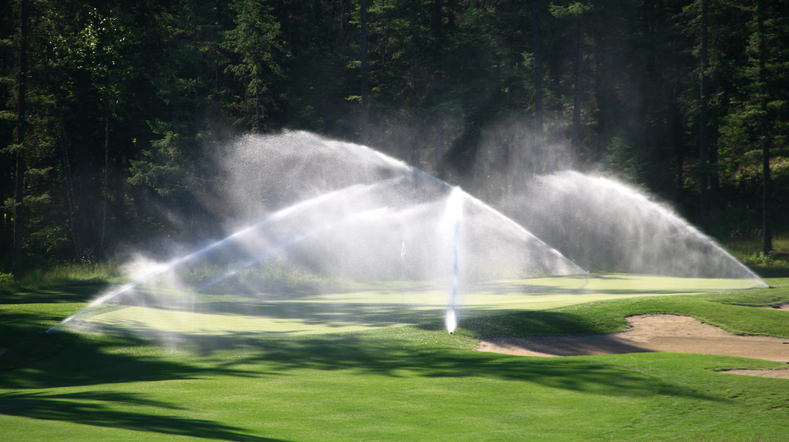Part 4 of Seeding a PGA Championship.
Reflecting on the future of golf course management, Wood emphasizes the vital role of the seed industry in the sport’s evolution. Disease resistance, drought tolerance and sustainability are driving forces in turfgrass innovation.
“The best way to get out of problems is through breeding,” he notes. “Look at gray leaf spot — it used to be devastating, but now we have varieties that are completely resistant. As we face more environmental regulations, especially those related to pesticide use, the seed industry is going to be vital in developing turf that can handle these new realities.”
Wood emphasizes that the TWCA is a key player in his efforts because of their investment in funding research to breed grasses that require less water and fewer inputs. For courses like Quail Hollow, which host events under intense scrutiny, these innovations are crucial to maintaining a reputation for excellence.

Pure-Seed Testing Inc.
At the heart of selecting the best turfgrass for the PGA Championship is years of scientific research and breeding. Melodee Fraser, Director of Research-East at Pure-Seed Testing, Rolesville, North Carolina, plays a pivotal role in developing the varieties that turf managers rely on. Her work focuses on solving the problems that cool-season grasses face in warm, humid climates as in North Carolina.
“We work on problems that cool-season grasses have in this warm, humid climate, particularly in the summertime,” Fraser explains. “But we also do warm-season turfgrass breeding here too.”
Overseeing the breeding and testing of turf varieties, Fraser and her team help ensure that superintendents like Keith have access to grasses that not only look great but also withstand the environmental stresses placed on them during high-stakes tournaments.
Fraser’s role goes beyond the laboratory — she regularly collaborates with golf course superintendents and turf managers across the country, providing insights on turf performance and helping to troubleshoot specific challenges.
“Superintendents or turf managers often contact us directly to ask about problems or new projects,” she says. “They want to know which varieties might work best in their unique conditions, especially when they are preparing for something as big as the PGA Championship.”
One of the major concerns in preparing Quail Hollow for the championship was timing. Because the PGA Championship takes place in May, Keith needed ryegrass varieties that would still be thriving and providing optimal playability, even as temperatures began to rise.
“He understands that not all ryegrasses are the same,” Fraser says. “Some varieties mature earlier and transition out of bermudagrass faster. He wanted to ensure that the ryegrass would still be vibrant and ready for play during the tournament.”
Fraser’s decades of experience allowed her to provide guidance on which varieties would hold up under these specific conditions.
“We talked about the varieties and their performance under different stresses, such as drought and disease resistance,” she says. “The key was finding varieties that wouldn’t mature too early and would stay green and dense for the players throughout the championship.”
Fraser’s research isn’t just about short-term performance — it’s also about sustainability and reducing inputs over the long term.
“Our ultimate goal is to develop varieties that help decrease the inputs turf managers have to use — whether it’s fewer pesticides, reduced mowing, or less water,” she explains.
She says this focus on sustainability aligns with the growing demand from both golf course managers and the general public for more environmentally conscious practices.
One of the key challenges that Fraser’s team tackles is drought tolerance, a big factor as water conservation becomes an increasingly pressing issue.

Photo provided by Melodee Fraser.
“At our Oregon farm, under the direction of Crystal Fricker, President of Pure-Seed Testing, we do extensive work on drought tolerance and salt tolerance,” Fraser explains. “With water becoming scarcer and sometimes of lower quality, we need grasses that can thrive under these conditions. That’s why we work on breeding varieties that can stay green longer under drought stress and recover quickly when they are watered.”
The breeding program’s commitment to reducing inputs also ties into the wider efforts of the TWCA.
“The TWCA trials are designed to identify turfgrasses that are proven to use less water,” she explains. “They use rainout shelters to simulate drought stress, then monitor how the grasses dry down and recover. It’s a rigorous process, but it’s essential for developing varieties that will help golf courses use less water without sacrificing playability.”
Fraser emphasizes that the success of these programs is evident in the field. “Keith and other superintendents who are mindful of sustainability and the environment really appreciate the importance of the research that goes into these grasses,” she says. “They understand that not all varieties are created equal, and the work we do helps them choose the best options for their specific conditions.”
The collaboration between researchers like Fraser and superintendents like Wood is what allows courses like Quail Hollow to maintain championship-level conditions while minimizing environmental impact. “It’s always rewarding to see the work we do in breeding and research have a direct impact on a golf course,” Fraser says. “Especially when that course is hosting one of the biggest tournaments in the world.”
As the countdown to the 2025 PGA Championship continues, Wood and his team are deep into preparation mode. He said approximately 100 members of the agronomy team are working on the course leading up the event.
“It’s quite a production, but it’s also a lot of fun. Success is always fun,” Wood says.
With the perfect combination of seed selection, innovative practices and a deep passion for turf management, Quail Hollow is poised to deliver a world-class championship experience. And while the players will take the spotlight, it’s the turf underfoot that makes it all possible.













